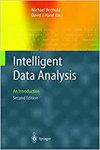Conversational recommender based on graph sparsification and multi-hop attention
IF 0.8
4区 计算机科学
Q4 COMPUTER SCIENCE, ARTIFICIAL INTELLIGENCE
引用次数: 0
Abstract
Conversational recommender systems provide users with item recommendations via interactive dialogues. Existing methods using graph neural networks have been proven to be an adequate representation of the learning framework for knowledge graphs. However, the knowledge graph involved in the dialogue context is vast and noisy, especially the noise graph nodes, which restrict the primary node’s aggregation to neighbor nodes. In addition, although the recurrent neural network can encode the local structure of word sequences in a dialogue context, it may still be challenging to remember long-term dependencies. To tackle these problems, we propose a sparse multi-hop conversational recommender model named SMCR, which accurately identifies important edges through matching items, thus reducing the computational complexity of sparse graphs. Specifically, we design a multi-hop attention network to encode dialogue context, which can quickly encode the long dialogue sequences to capture the long-term dependencies. Furthermore, we utilize a variational auto-encoder to learn topic information for capturing syntactic dependencies. Extensive experiments on the travel dialogue dataset show significant improvements in our proposed model over the state-of-the-art methods in evaluating recommendation and dialogue generation.基于图稀疏和多跳注意的会话式推荐
会话式推荐系统通过交互式对话为用户提供项目推荐。使用图神经网络的现有方法已被证明是知识图学习框架的适当表示。然而,对话上下文所涉及的知识图是巨大的和有噪声的,特别是噪声图节点,这限制了主节点对相邻节点的聚集。此外,尽管递归神经网络可以对对话上下文中单词序列的局部结构进行编码,但要记住长期依赖关系可能仍然具有挑战性。为了解决这些问题,我们提出了一种名为SMCR的稀疏多跳会话推荐模型,该模型通过匹配项来准确识别重要边,从而降低了稀疏图的计算复杂度。具体来说,我们设计了一个多跳注意力网络来编码对话上下文,该网络可以快速编码长对话序列以捕获长期依赖关系。此外,我们利用变分自编码器来学习主题信息,以捕获语法依赖关系。在旅行对话数据集上进行的大量实验表明,我们提出的模型在评估推荐和对话生成方面比最先进的方法有了显著的改进。
本文章由计算机程序翻译,如有差异,请以英文原文为准。
求助全文
约1分钟内获得全文
求助全文
来源期刊

Intelligent Data Analysis
工程技术-计算机:人工智能
CiteScore
2.20
自引率
5.90%
发文量
85
审稿时长
3.3 months
期刊介绍:
Intelligent Data Analysis provides a forum for the examination of issues related to the research and applications of Artificial Intelligence techniques in data analysis across a variety of disciplines. These techniques include (but are not limited to): all areas of data visualization, data pre-processing (fusion, editing, transformation, filtering, sampling), data engineering, database mining techniques, tools and applications, use of domain knowledge in data analysis, big data applications, evolutionary algorithms, machine learning, neural nets, fuzzy logic, statistical pattern recognition, knowledge filtering, and post-processing. In particular, papers are preferred that discuss development of new AI related data analysis architectures, methodologies, and techniques and their applications to various domains.
 求助内容:
求助内容: 应助结果提醒方式:
应助结果提醒方式:


